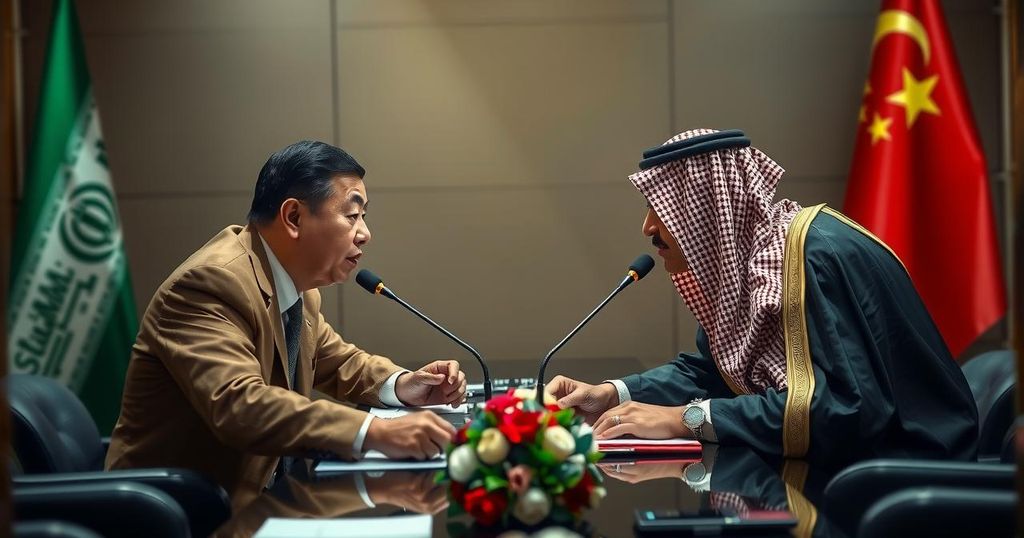China Supports Strengthening Saudi-Iran Relations Amid Regional Tensions

Senior diplomats from China, Saudi Arabia, and Iran convened in Riyadh to reaffirm support for strengthened ties across various fields. They condemned Israeli military operations in Gaza and Lebanon, calling for an immediate end to the violence and denouncing violations of Iranian sovereignty. This meeting showcases China’s emerging role as a mediator in Middle Eastern diplomacy, striving to foster regional stability amidst escalating tensions.
In a significant diplomatic engagement held in Riyadh, senior diplomats from China, Saudi Arabia, and Iran convened to reaffirm their support for enhanced relations across various domains. During this meeting, which took place on Tuesday, they collectively condemned recent Israeli military actions in Gaza and Lebanon, voicing a call for an immediate cessation of these hostilities, as reported in a joint statement issued by China’s foreign ministry. The diplomats also denounced the violations of Iran’s sovereignty, attributed to Israeli military strikes, acknowledging the escalating tensions in the region. This gathering followed Israel’s confirmation that its strikes aimed to undermine elements of Iran’s nuclear program while impacting its defensive capabilities. Amid rising fears of possible escalations, the three nations articulated a common stance that emphasized the necessity to address the prevailing cycle of violence, which they deemed a significant threat to regional and global security, as well as maritime safety. China’s mediation in the Riyadh talks reflects its growing ambition to act as a peacemaker in the Middle East. The agreement formed during these discussions is viewed as a diplomatic achievement for Beijing, as it endeavors to emerge as a competitive force against traditional Western influences, particularly that of the United States. Furthermore, the joint statement reported by the official Saudi Press Agency indicated that Riyadh and Tehran reiterated their commitment to fully implement the Beijing Agreement, signaling a strong intention to foster cooperative relations moving forward.
The recent meeting in Riyadh marks an important milestone in the context of Middle Eastern diplomacy, particularly concerning the trilateral relations between China, Saudi Arabia, and Iran. China’s emerging role as a mediator highlights its strategy to strengthen ties within the region and provide an alternative diplomatic approach compared to Western dominance, especially from the United States. The tensions involving Israel, particularly relating to its military operations in Gaza and Lebanon, introduce a complex backdrop against which these discussions are taking place, underscoring threats to regional stability and security.
In conclusion, the recent diplomatic talks in Riyadh underscore a pivotal moment in strengthening relations between Saudi Arabia and Iran with the support of China as a mediator. Both countries have committed to upholding the agreements established, while collectively condemning Israeli military actions deemed harmful to regional stability. This development not only reflects a shift towards enhanced cooperation among these nations but also signals China’s growing influence as a peace broker in a traditionally volatile region.
Original Source: www.scmp.com








